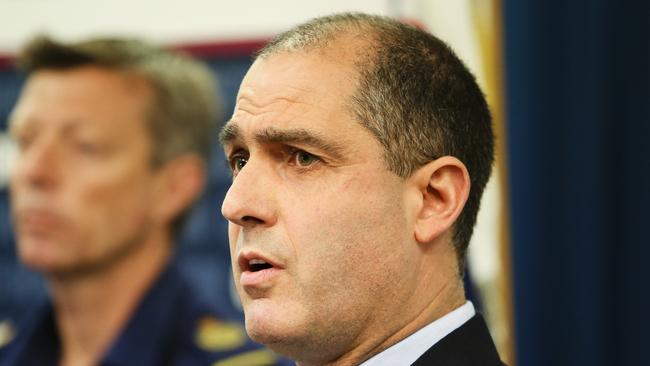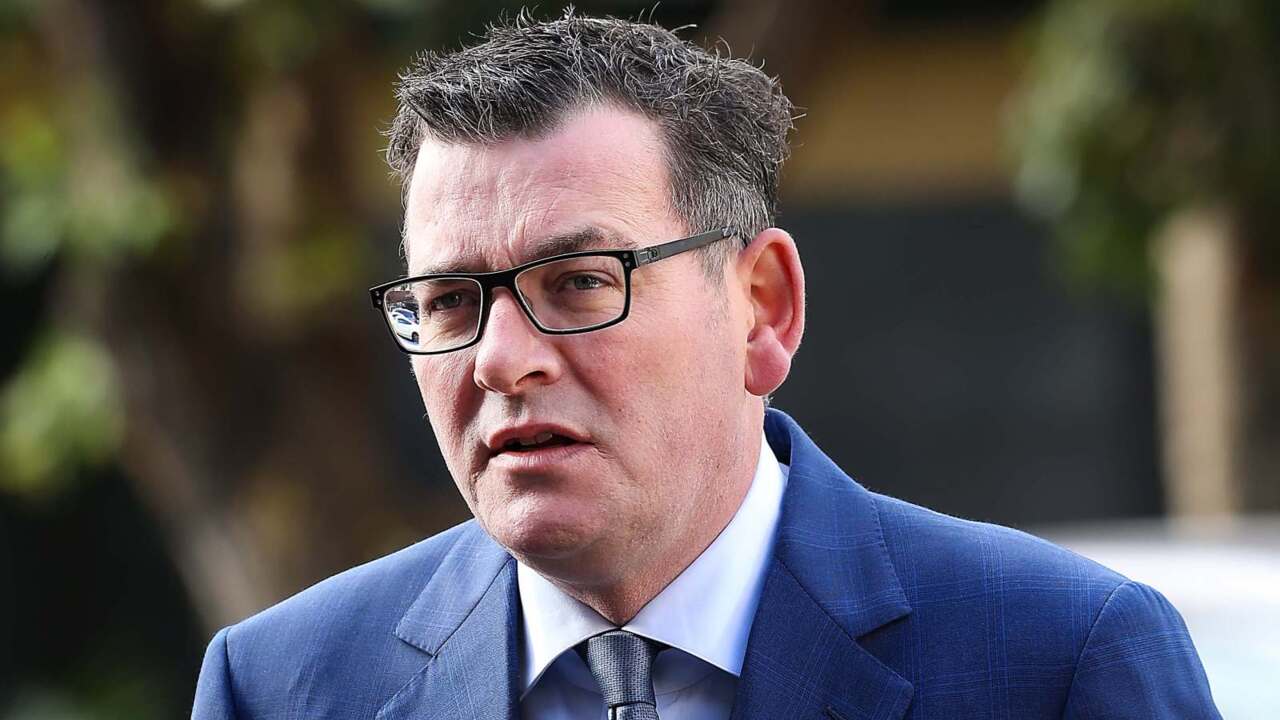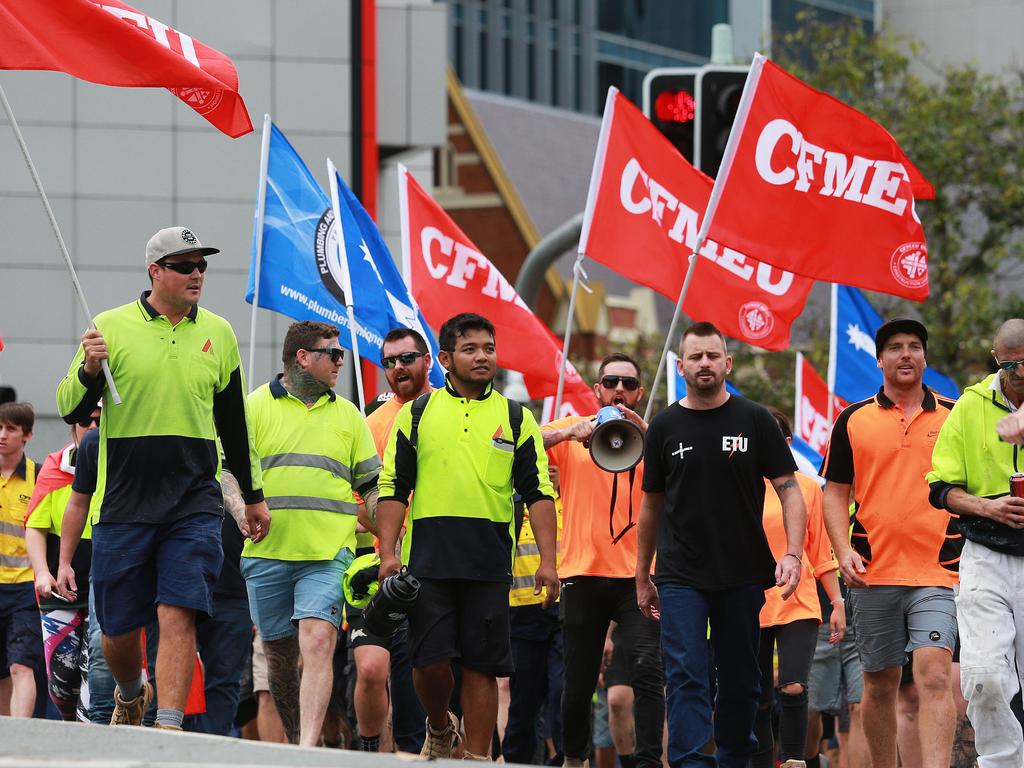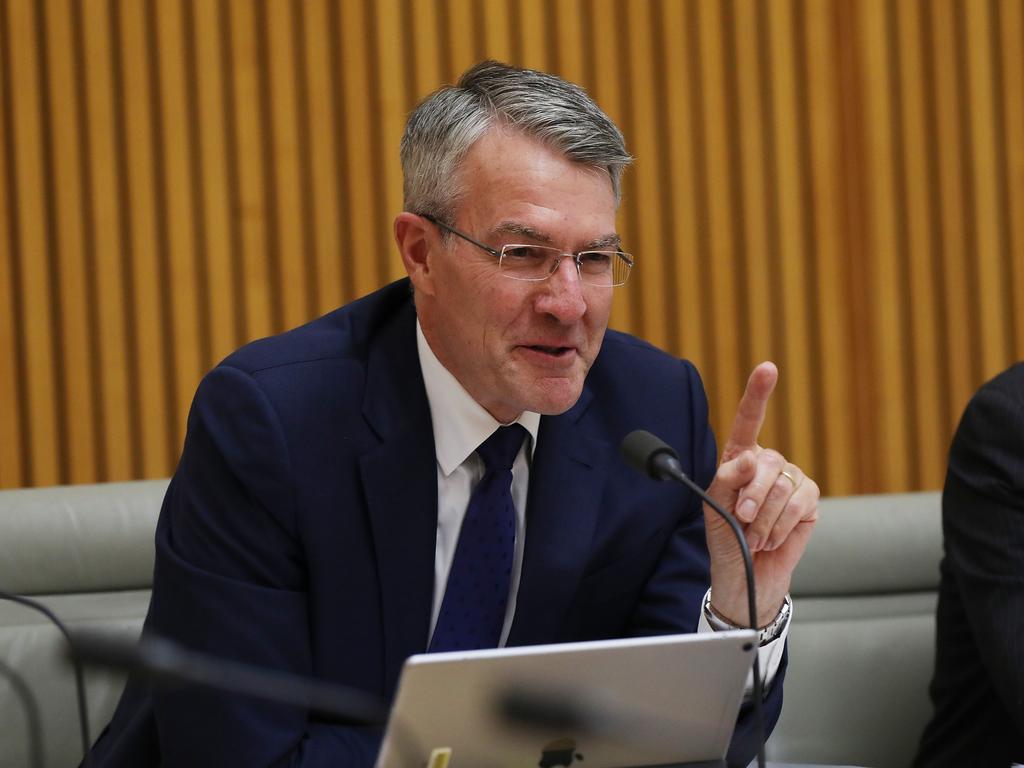
There are many who favour an integrity commission operating in secret to avoid public vilification but operating in secrecy is both a sword and a shield as the failed prosecution by the Commonwealth DPP of former Australian Federal Police deputy commissioner Ramzi Jabbour proves.
During a “secret” investigation by the Australian Commission for Law Enforcement Integrity and the AFP, it was publicly announced Jabbour would be stood down pending the outcome and, like every other person in the community, he was innocent until proven guilty. Months after standing down, Jabbour faced two criminal charges in the ACT Magistrates Court.
The first charge related to alleged improper assistance by Jabbour in support of a boy’s homework assignment. The boy is a relative of Jabbour. The court heard ACLEI and AFP investigators attended a private Canberra high school in search of a homework assignment submitted by a relative of Jabbour. The court proceedings do not reveal if investigators attended the high school with a search warrant requiring an affidavit. Was it explained in conversations with teachers or any affidavit that Jabbour was innocent until proven guilty?
The second charge against Jabbour alleged he was in possession of his service firearm during a period of recreation leave. At Jabbour’s hearing, the magistrate was cautious not to be flippant about what had happened despite what must have been an irresistible urge to question why the matters were before him. This was a serious situation. By this time, Jabbour had lost his job as a deputy AFP commissioner and therefore immediately ruled out of contention for the position of AFP commissioner.
The Commonwealth Director of Public Prosecutions assessment process presumably led to the prosecutions and engagement of Sydney-based counsel at significant cost to the taxpayer. The magistrate hearing the criminal charges against Jabbour not only dismissed both the homework assignment and firearms charges, but he also awarded costs against the commonwealth.
The Jabbour case presents as an investigation characterised by a large number of spurious and frivolous allegations, along with the inveigling and tormenting of witnesses to prove an innocent man guilty of something … anything. From all accounts, and there are many, the case exposed behaviours where leaders did not lead and managers did not manage, preferring instead to pass the buck by “following due process”. Is this what we want in a new integrity commission? An ordinary member of the public would never have been subjected to such an intrusive and biased investigation, which is why “secret” investigations have to be conducted sensibly.

An eminent QC and former corruption commissioner and commonwealth prosecutor does not believe such matters were ever intended to fall within the remit of a corruption commission. Nor does he think the matters meet the prosecution guidelines of the commonwealth.
The saga raises the prospect, even if it was an unintended consequence, that the ACLEI investigation was initiated to remove Jabbour from contention for the role of AFP commissioner. It also raises questions about the motive of selective leaks to the media of the “secret investigation” on the eve of Jabbour’s hearing. Was the motive to salvage reputations or a way of publicly explaining why criminal charges proceeded? If so, which is the greater evil? Helping a relative with a homework assignment and being in possession of your police firearm when licensed to do so – or manipulating a situation where you remove potential candidates from a fair contest for promotion?
The costs involved in both the investigation and prosecution add to the loss of reputation and career options, which are impossible to quantify. There is also the opportunity cost of diverging resources from more compelling cases such as “gates” (corrupt officials) at the border facilitating transnational and organised crime.
In Australia, unlike some other developed countries, we do not have a legislated “right to be forgotten”. Incorrect statements on websites are impossible to change regardless of the outcome of court proceedings without engaging in further civil litigation. Should the onus be placed on the agency responsible for failed investigations or prosecutions to correct the postings on websites?
The ACLEI Commissioner appeared before the Parliamentary Joint Committee on the Australian Commission for Law Enforcement Integrity earlier this year and discussed the lack of options with the current definition of “corruption”, implying the legislation left few options for the exercise of discretion. This will be critical for the new agency.
It is proposed the new agency will be able to reach back for a period of up to 15 years. Does that mean any “pork barrelling”, if captured under the definition of corruption, will be trawled over, bogging down the new agency? Under the current legislation, the PJC can only look at the performance of the ACLEI Commissioner and not reinvestigate matters.
How did the criminal prosecution of Jabbour meet the prosecution policy of the Commonwealth DPP? The safety net of an independent DPP does not seem to have worked on this occasion.
Would Jabbour have made a good AFP commissioner? Neither the government nor the people of Australia nor the AFP will ever know.
It has emerged that some people who participated in this saga were biased against Jabbour. One such person, who had been admonished and transferred by Jabbour from the AFP’s professional standards section, was allowed to play a crucial role throughout secret ACLEI hearings. This is morally wrong and a brazen conflict of interest.
A former Canberra businessperson of the year described how he was taken before a secret ACLEI hearing to spell out the details of his financial relationships with Jabbour. There were none. That secret action does not represent “innocent until proven guilty”. We do not know the number of people similarly treated.
Parliamentary committees, integrity and anti-corruption agencies often have the challenging task of delineating between genuine whistleblowers, marginalised employees or serial or frivolous complainants.
To improve the potential for a successful new commonwealth integrity commission two options may assist. First, the installation of a panel of assessors who assess referrals and weed out frivolous and vindictive complaints. The panel needs to be made up of people with worldly experience as opposed to zealous or risk-averse people with limited experience outside the so-called Canberra bubble. The new agency will no doubt need to brace itself for vigorous political referrals demanding quick turnarounds of decisions to investigate allegations of corruption, so the assessment process needs to be robust and expedient.
Second, an inspector-general position could be established as a safety net to ensure the commonwealth’s investigation and prosecution guidelines are followed. An inspector-general could also deal with the detail of alleged failings of the new organisation rather than tie up the valuable time of a parliamentary joint committee or a Senate committee. Surely, this would be a better use of taxpayer funds.
Mick Keelty is an Adjunct Professor at the Charles Sturt University Centre for Policing and Security Studies; he is a member of the National Leadership Group of the Safer Places/Safer People initiative of the Department of Social Services; he was formerly the inspector-general for the Murray-Darling Basin; a member of the former Centre for Applied Philosophy and Public Ethics; a part-time corruption commissioner at the Queensland Crime and Corruption Commission and AFP commissioner.








If justice is what is driving the push to set up a commonwealth integrity commission then it is essential that it cannot be politically weaponised and is not a law unto itself. Integrity and anti-corruption agencies in Australia have been constantly adjusted since the introduction of the NSW Independent Commission Against Corruption in 1988. The model was based on the Hong Kong model addressing the infiltration of government by Asian organised crime.